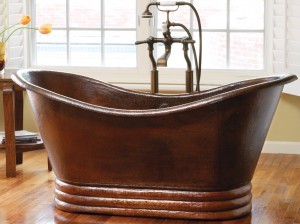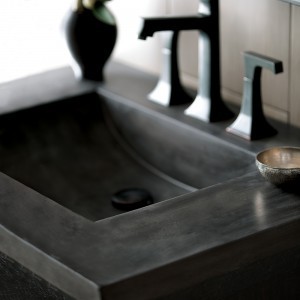Stylish and Sustainable Materials for the Bath
Naomi Neilson Howard, Founder and CEO
This article originally appeared in GreenLodgingNews.com.
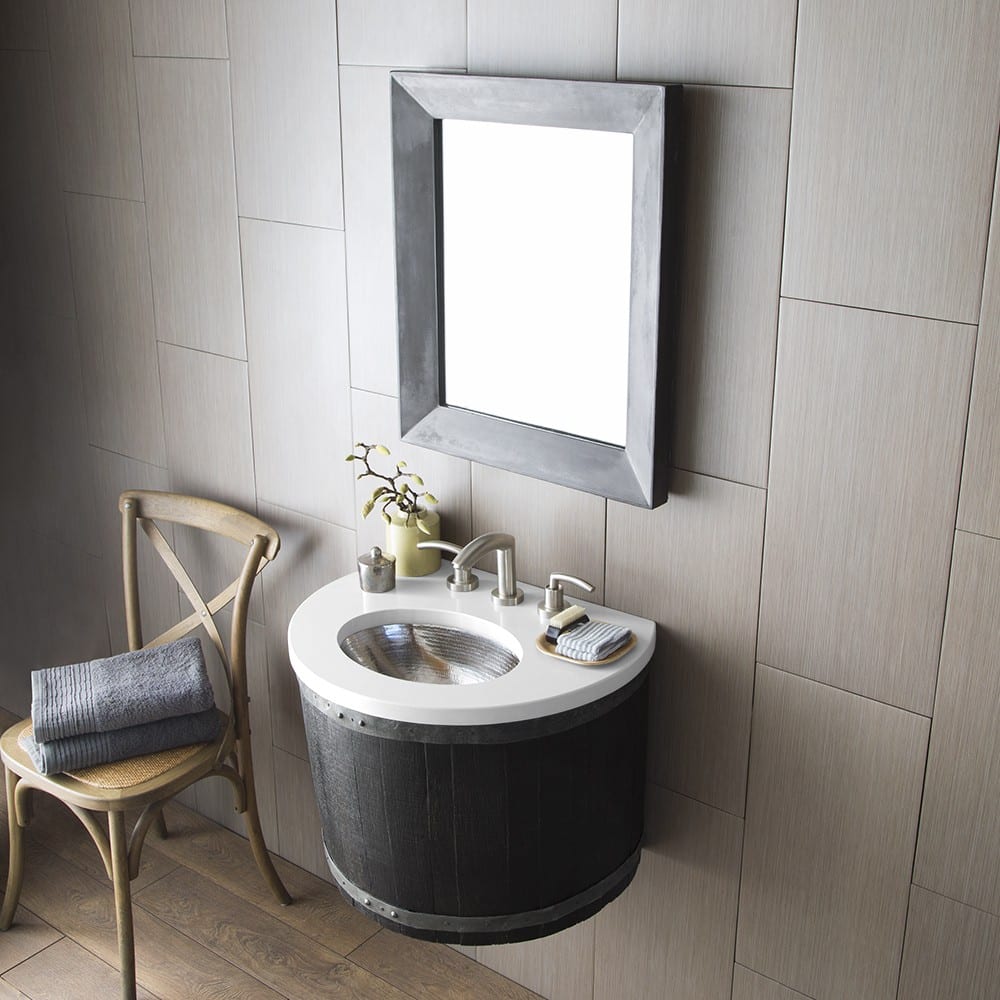 Sustainable materials aren’t always what springs to mind when one envisions a luxurious bathroom. It’s true that the two haven’t always gone hand in hand. For some, sustainability paints a picture of austerity, while luxury brings to mind lavish extravagance. Thankfully, that paradigm is shifting, and the selection of sustainable luxury products for the bath is swelling. Sustainably sourced materials for the bath include those recycled or reclaimed, rapidly renewable, and/or certified as sustainable. Durability is supremely important, as a longer-lasting material will not need to be replaced as quickly and thus won’t take up space in a landfill.
Sustainable materials aren’t always what springs to mind when one envisions a luxurious bathroom. It’s true that the two haven’t always gone hand in hand. For some, sustainability paints a picture of austerity, while luxury brings to mind lavish extravagance. Thankfully, that paradigm is shifting, and the selection of sustainable luxury products for the bath is swelling. Sustainably sourced materials for the bath include those recycled or reclaimed, rapidly renewable, and/or certified as sustainable. Durability is supremely important, as a longer-lasting material will not need to be replaced as quickly and thus won’t take up space in a landfill.
Our five favorite picks for earth-friendly bath sustainable materials that don’t skimp on luxury:
1. Recycled Copper
Hammered copper bathtubs and sinks provide a significant “wow” factor—making homeowners feel sufficiently pampered in a spa-like bath space. But beyond the distinctive texture and magnificent coloration, recycled copper is extraordinary in the field of sustainability. It takes less energy to recycle a material than to extract, mine, or originally produce it, and copper is one of the few materials in the world that retains its performance even with repeated recycling. It’s also one of the first metals ever used by humans, dating back more than 10,000 years. Copper shows its versatility in its ability to be formed, rolled, and hammered into sheets without breaking. Hand-hammered copper sinks and bathtubs also speak to the culture and heritage of the artisans who crafted them.
2. Sustainably Made Concrete
Concrete is not only incredibly on-trend, it is one of the least energy intensive materials one can specify in a bathroom design. Still, some types of concrete have less of an environmental impact than others. One way to accomplish this is to replace part of the cement in the mixture with a recycled or renewable reinforcement material, such as jute. One hundred percent biodegradable and recyclable, jute harvested near the concrete production point can help to support local communities. It also minimizes transportation emissions, which reduce by the fact that this type of concrete can be 40 percent lighter than traditional concrete, making it perfect for both sinks and countertops. Our NativeStone® line of concrete sinks for the kitchen and bath debuted in late 2014, fits this bill.
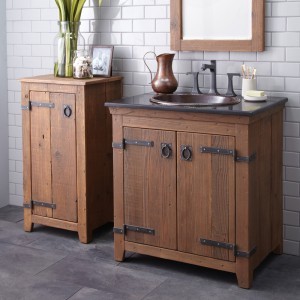
Americana Vanity in Chestnut
3. Reclaimed Wood
Reclaiming and repurposing can give new life to a material destined for the landfill. Reclaimed wood is often deeply textured, with visible wear marks and nail holes and the tacit knowledge of a former “life”—all adding character to bathroom vanities and mirrors built from it. Reclaimed woods aren’t susceptible to the same shrinkage, movement, and warping as new wood, making for solid, built-to-last pieces. Generally, processing reclaimed wood has a lower impact on the environment compared to the felling, transporting, and processing of virgin timber. Our Vintner’s Collection and Americana Collection of reclaimed wood vanities are handcrafted by American artisans from used wine staves and barrels and barn wood, respectively.
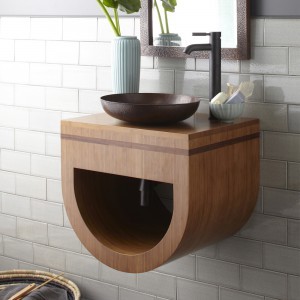
Halcyon wall-mounted bamboo vanity
4. Bamboo
A plant that can grow several feet in a single day! Naturally water-resistant and extremely strong to boot, bamboo is a prime candidate for bath furniture. Inherently sustainable, bamboo is a member of the grass family, growing new shoots from the same root system for decades, all the while sequestering large amounts of carbon from the atmosphere. Moso bamboo, the most widely cultivated, fastest growing, and strongest of the various bamboo species, reaches full maturity in a mere five to seven years.
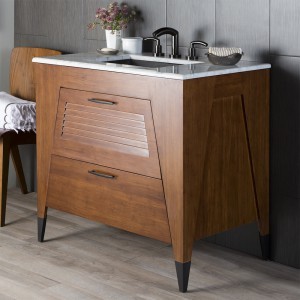
Trinidad bamboo vanity
5. FSC-Certified Wood
Sourcing FSC-certified woods for bath furniture ensures the wood grows and harvests with environmentally and socially responsible methods. Among the principles of the Forest Stewardship Council, forest management must respect the rights of indigenous peoples and maintain the well-being of forest workers and the local community; conserve biological diversity, water, ecosystems, and landscapes; and use the forest efficiently to ensure economic viability. That’s not just talking—the FSC audits and inspects regularly, making this certification truly legit. Native Trails uses FSC wood in many of our bath vanities to ensure their low impact on the earth.

Naomi Neilson Howard is the founder and CEO of Native Trails, the premier source for functional, earth-friendly products for the kitchen, bath, and home. She has spent the last twenty years creating beautiful, life-enhancing products with artisans in Mexico, the United States, and abroad.

